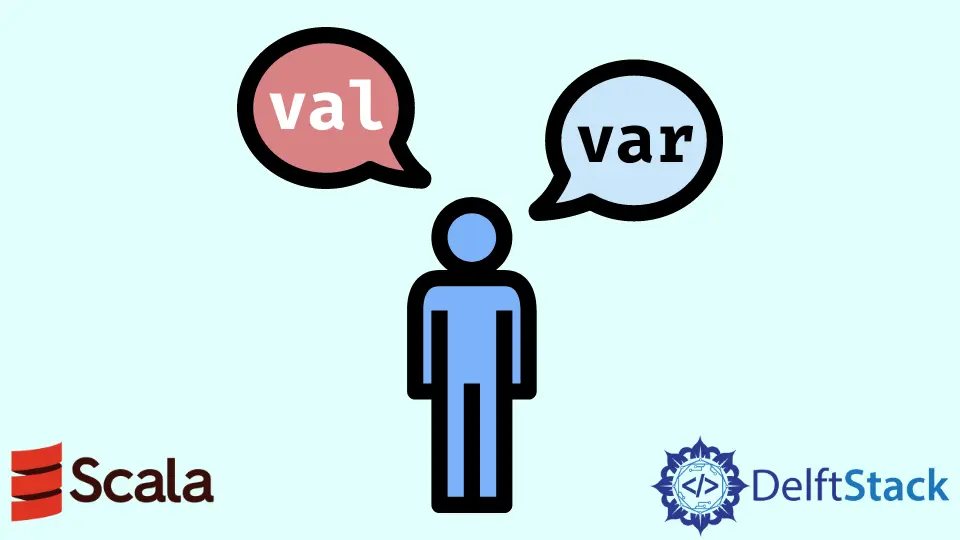Difference Between val and var in Scala
- Understanding val and var
- Using val in Scala
- Using var in Scala
- Choosing Between val and var
- Conclusion
- FAQ

Scala is a powerful language that combines functional and object-oriented programming paradigms. One of the fundamental aspects of Scala is its way of handling variables, specifically through the use of the keywords val and var. Understanding the difference between these two keywords is crucial for any Scala developer, as it impacts how you manage data and state in your applications.
In this article, we’ll explore the distinctions between val and var, their use cases, and how they can enhance your Scala programming experience. Whether you’re a beginner or an experienced developer, this guide will equip you with the knowledge to make informed decisions in your coding practices.
Understanding val and var
In Scala, val and var are two keywords used to declare variables, but they serve different purposes.
-
val: This keyword is used to declare an immutable variable. Once a value is assigned to a
val, it cannot be changed or reassigned. This immutability is a core feature of functional programming, promoting safer and more predictable code. For example, if you declare a variable withval, you can think of it as a constant. -
var: In contrast,
varis used to declare a mutable variable. You can change or reassign the value of avarat any time during the program’s execution. This flexibility can be useful in scenarios where the value of a variable needs to change frequently.
Let’s look at some examples to clarify these concepts further.
Using val in Scala
When you declare a variable with val, you are essentially saying, “This variable will not change.” Here’s a simple example:
val pi = 3.14
In this case, pi is assigned the value of 3.14, and you cannot change it later in the code. If you try to reassign it, you’ll encounter a compilation error.
Output:
error: reassignment to val
The immutability offered by val is particularly beneficial in functional programming. It allows you to create safer, more predictable code that is easier to debug and maintain. By using val, you can avoid unintended side effects that might occur when a variable is modified elsewhere in your code. This leads to cleaner and more understandable code, especially in larger applications where keeping track of variable states can become complex.
Using var in Scala
On the other hand, var allows you to declare a variable that can be modified later. This is useful in situations where the value of a variable needs to change throughout the program’s lifecycle. Here’s an example:
var counter = 0
counter += 1
In this snippet, counter is initialized to 0, and then it is incremented by 1. You can change its value as many times as needed.
Output:
1
Using var can be advantageous in scenarios where you need to keep track of changing states, such as in loops or when handling user input. However, it is essential to use var judiciously, as excessive use can lead to code that is harder to follow and maintain. The key is to balance the use of mutable and immutable variables based on the specific needs of your application.
Choosing Between val and var
When deciding whether to use val or var, consider the following guidelines:
- Use
valby default: Immutability leads to safer code, so start withvalunless you have a specific reason to usevar. - Use
varfor state changes: If you need a variable that will change over time, such as in a loop or when tracking user input, thenvaris appropriate. - Consider performance: Immutable variables can sometimes lead to better performance optimizations by the Scala compiler, as they can be safely shared across threads without the risk of modification.
By following these guidelines, you can write code that is not only efficient but also easier to understand and maintain.
Conclusion
In summary, the difference between val and var in Scala is a fundamental concept that every developer should grasp. val represents immutable variables, promoting safer and more predictable code, while var allows for mutable variables that can change over time. By understanding when to use each keyword, you can enhance your coding practices and build more robust applications. Remember to prioritize immutability with val when possible, and use var only when necessary. This balance will lead to cleaner, more maintainable code.
FAQ
-
What is the main difference between val and var in Scala?
val is immutable and cannot be reassigned, while var is mutable and can be changed. -
When should I use val over var?
Use val when you want to ensure that a variable’s value remains constant throughout its scope. -
Can I change the value of a val after it has been assigned?
No, once a value is assigned to a val, it cannot be changed. -
Is it a good practice to use var in Scala?
It is generally recommended to use val by default and only use var when necessary to manage changing states. -
How does immutability benefit Scala programming?
Immutability leads to safer, more predictable code, making it easier to debug and maintain.
